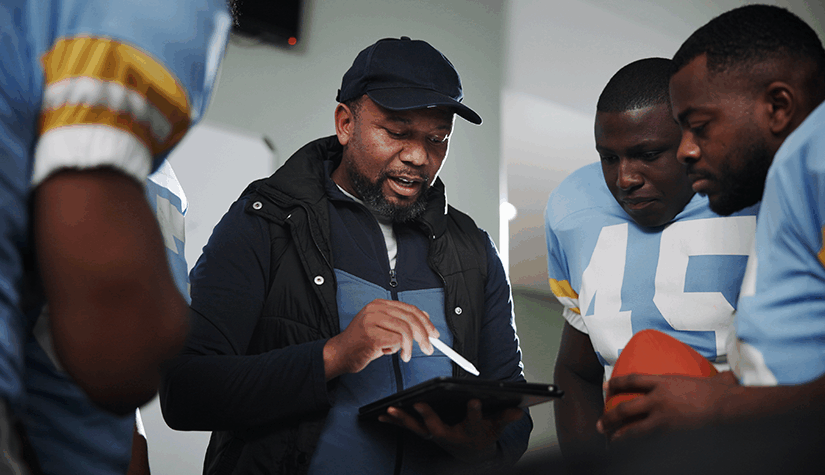Five signs you might be a weak coach

As I’m sure all of you can attest, coaching is about more than just coaching. You must be on top of your athletes’ grades, venture out into the campus community, serve on various committees, and be an administrative assistant to make sure all the I’s are dotted and T’s crossed.
A well prepared coach is ready for the call from their athletic director saying, “Come down to my office with a list of your program needs.” But for every well prepared coach, there’s a weak coach. A weak coach is afraid to rock the boat, so they’re afraid to ask for things that would improve their program. Are you worried that this might be you?Here are five signs that you might need to take more control and initiative in your program.
1. Your peers whack you around.
As you walk up and down your hallway, every other coach has two full-time assistants, brand new equipment and a growing budget. On the other hand, your program has a part-time assistant making peanuts, equipment from the Stone Ages, and a budget that won’t let you fund the annual banquet.
If this sounds like you, consider standing up for yourself. Your program is just as valuable as the others in your school, and you’re the one who needs to convey that message.
2. You avoid confrontation.
Even though you notice everything mentioned in No. 1, you won’t schedule a meeting with your boss. You won’t even do a pop in. Worst of all, when the head honcho asks you how things are going, you say, “Great!”
Nobody should seek confrontation, but when you’re treated unfairly, it’s time to make a statement. That means having difficult conversations from time to time.
3. You like the status quo.
Your boss knows that they’ll never have to worry about you storming into their office demanding “more.” When you were in college, the players drove the vans to competition, so what’s wrong with your team doing that now? Plus, who wants to go to the athletic director’s office and ask for a coach bus like every other team.
The status quo is dangerous in our profession, as coaches should always be on the lookout for ways to improve and take then next step forward. If you’re satisfied or too comfortable with the way things are, there might be a problem.
4. You’re always the victim.
If you actually stood up for your program and for your team, you wouldn’t get a chance to play the victim — and that’s your comfort zone. And the added bonus You have a built-in excuse for when your team doesn’t perform.
When the program struggles, these coaches might often point to their schedule or other aspects of their team makeup. But there comes a time when you need to stop pointing the finger outward and turn it on yourself.
5. Everyone’s lost respect for you.
While you’re thinking you’ve played the victim card to the hilt, everyone else in the department wonders when you lost your fire. They feel bad for your assistants and your players, because they deserve more. Your unwillingness to advocate for your team not only hurts the quality of their experience, but it lessens everyone’s respect for you.
Though this is an exaggeration, I’m sure there are coaches out there who may be a bit like the wimpy coach described above. The Bible says that we don’t get stuff because we don’t ask for it — so go and ask. The answer may be no, but you’ll never find out until you make the first move.
Dawn Redd is the head volleyball and assistant track & field coach at Beloit College in Wisconsin.
One thought on “Five signs you might be a weak coach”
Leave a Reply
You must be logged in to post a comment.






I have been coaching basketball since 1971. I had a 21 year year career in the
NBA as a Player Personnel Director and Assitant Coach.
Presently, i speak at Coaches Clinics and work with HS coaches doing two hour clinics for there teams. The NUMBRER ONE COMPLAINT EXPRESSED TO ME is the parents of there players. In my opinion it stems from unrealistic
expectations about there son or daughter getting a scholarship.
I tell the players there are 550,ooo basketball players (boys) playing in high school. Of that number 3% get scholarships, 1% go to the NBA.
We need to educate the parents and players. Coaches dont go to parents jobs and tell them how to run there businesses, etc.
The bottom line it forces coaches out of the professions and creates a negative enviorment where its not fun to coach. Most coaches do it because they love the game in high school not for the money.
Sincerely
Barry Hecker